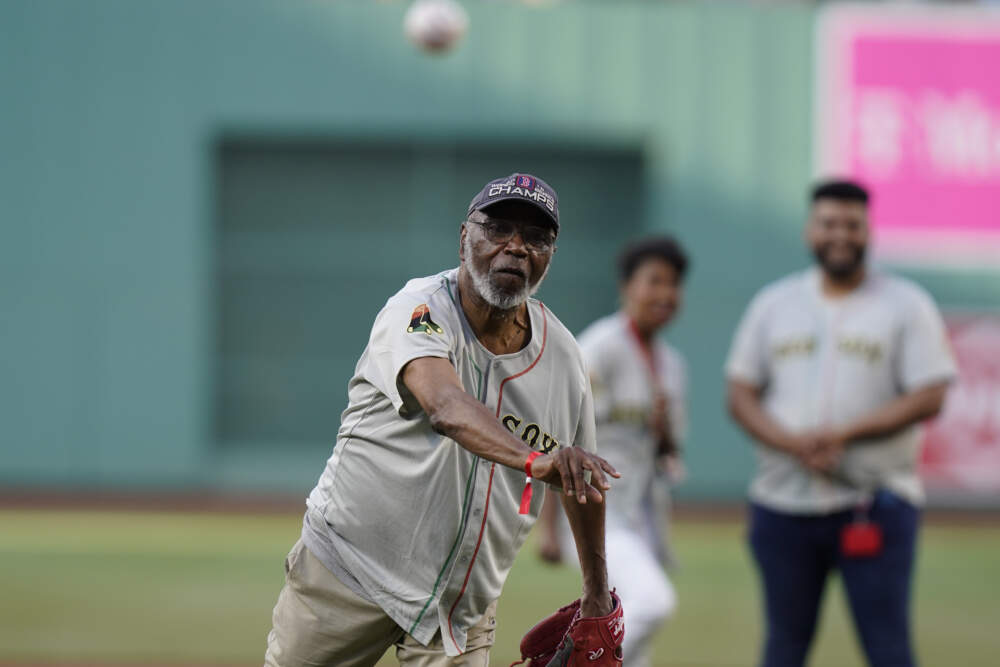Advertisement
Boston's Morning Newsletter
How Massachusetts is marking its third official Juneteenth holiday

Editor's Note: This is an excerpt from WBUR's daily morning newsletter, WBUR Today. If you like what you read and want it in your inbox, sign up here.
Happy Juneteenth! Today is the third time Massachusetts will recognize Juneteenth as an official state holiday, and communities across the state are holding celebrations.
Need a refresher on Juneteenth’s origins? Here’s a history lesson on what exactly the day represents and how it has been celebrated over the last century and a half. And since state and federal workers (and increasingly many private sector employees) get the day off as a paid holiday, here’s a reminder of what’s open and closed in Massachusetts.
Maybe you have the day off, too. How should you spend it? Let’s start with a rundown of a few local Juneteenth events (plus an about-face on the Embrace and what’s next for affirmative action).
Head to a local museum: Admission is free today at Boston’s Museum of Fine Arts, which is hosting a slate of themed programming — including live music, dance, poetry and a roundtable discussion — for its 11th annual Juneteenth open house. This is also one of the last weeks you’ll be able to see the exhibit “Hear Me Now: The Black Potters of Old Edgefield, South Carolina,” which puts a spotlight on an often-overlooked aspect of the American slavery system.
- The MFA isn’t your only option. Check out our arts and culture team’s Juneteenth weekend guide for other offerings from the ICA, Isabella Stewart Gardner Museum and more.
Visit the Embrace: The striking new statue on Boston Common honoring the Kings has attracted many visitors. In fact, WBUR’s Cristela Guerra reports that it recently won over a new fan. Coretta Scott King’s cousin Seneca Scott, who was one of the Embrace’s first critics, changed his mind after visiting the sculpture. “I’m happy to say I got to visit the statue in the physical. It was a thrilling experience…so I stand corrected,” Scott said at a festival last week hosted by Embrace Boston, the group behind the statue.
- What’s next: Guerra reports that Embrace Boston is now looking ahead to its next big project: a 31,000-square-foot music hall, museum and arts and culture space.
Take a walk: The Concord Museum will lead a walking tour to teach visitors about the Concord men and women who played a role in the abolitionist movement. The museum also has an anti-slavery gallery that highlights the stories of freed African-Americans.
- Psst: The morning walking tour is sold out but there are still spots left for the 2 p.m. tour.
Learn about the history of slavery in Boston: This past Friday, the city opened a new two-floor exhibit at Faneuil Hall highlighting the lives of slaves in Boston and how the city upheld the institution of slavery. (You may recall that Faneuil Hall itself has been the subject of ongoing protests over its namesake’s role in the slave trade.)
- What’s new: WBUR’s Samantha Coetzee reports that the new exhibit features artifacts from slavery in the city, some of which were discovered during archeological surveys at Faneuil Hall.
Meanwhile, local college and government leaders are bracing for the Supreme Court’s decision on the legality of affirmative action. The case centers on admissions policies at Harvard University and the University of North Carolina that consider race. And if the court’s conservative majority overturns the legal precedent allowing race-conscious admissions policies, NPR’s Nina Totenberg reports it would not only outlaw affirmative action across higher education but also have ripple effects for selective primary and secondary public schools like Boston Latin and potentially other areas like employment.
- Zoom out: WBUR’s Max Larkin reports that nine states have banned race-conscious admissions at their public universities — leading to an at least temporary, but stark, decline in overall racial diversity.
- Zoom in: One Harvard study found that, without affirmative action, the school’s Black student population would drop from 14% to 6%. The Crimson has more on the origins of the lawsuit against Harvard and the history of affirmative action cases.
- What local officials are doing: Last week, Gov. Maura Healey created a new advisory council to help the administration promote diversity at colleges in the wake of the anticipated Supreme Court decision. Healey’s administration is also trying to highlight free college planning tools like MEFA Pathway.
P.S.— Radio Boston is devoting today’s full show to a discussion about what Juneteenth means for Black Bostonians — and whether, with more representatives of color in power and investments in equity, the city is on the brink of real change. You can listen to the special hour early online here.
